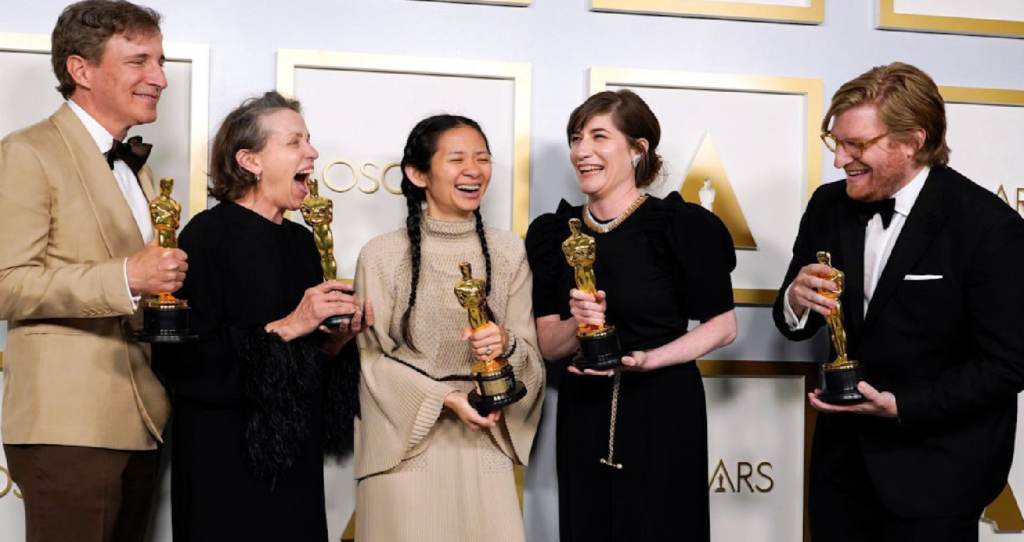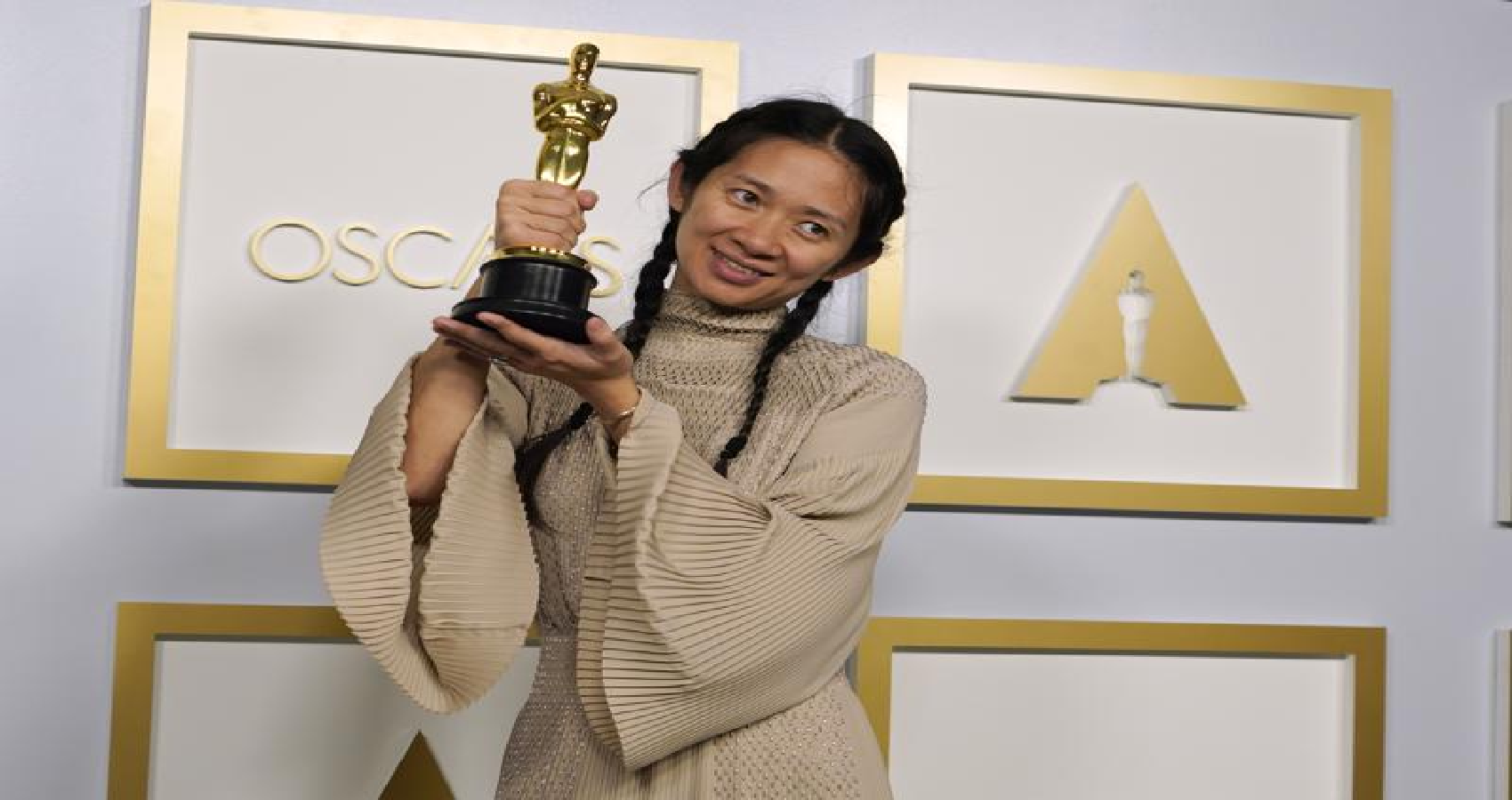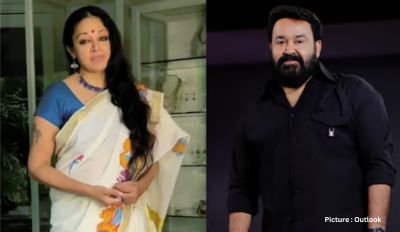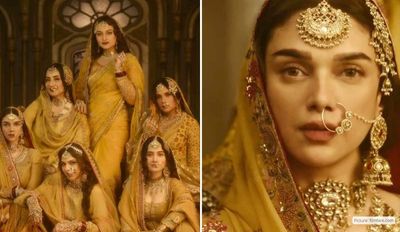Chloé Zhao’s “Nomadland,” won best picture at the 93rd Academy Awards, where the China-born Zhao became the first woman of color to win best director and a historically diverse group of winners took home awards.
Chloé Zhao’s “Nomadland,” a wistful portrait of itinerant lives on open roads across the American West, won best picture on Sunday, April 25th at the 93rd Academy Awards, where the China-born Zhao became the first woman of color to win best director and a historically diverse group of winners took home awards, Associate Press reported.
“I have always found goodness in the people I’ve met everywhere I went in the world,” said Zhao when accepting best director, which Kathryn Bigelow (“The Hurt Locker”) was the only previous woman to win. “This is for anyone who has the faith and the courage to hold on to the goodness in themselves and to hold on the goodness in other no matter how difficult it is to do that.”
With a howl, “Nomadland” star Frances McDormand implored people to seek out her film and others on the big screen. Released by the Disney-owned Searchlight Pictures, “Nomadland” premiered at a drive in and debuted in theaters, but found its largest audience on Hulu. “Please watch our movie on the largest screen possible,” McDormand said. “And one day very, very soon, take everyone you know into a theater, shoulder to shoulder in that dark space, and watch every film that’s represented here tonight.”
The best actor award went to Anthony Hopkins for his performance in the dementia drama “The Father.” The award had been widely expected to go to Chadwick Boseman for his final performance in “Ma Rainey’s Black Bottom.” McDormand won best actress, too — her third such win. Only Katharine Hepburn, a four-time winner, has won best actress more times.
The most ambitious award show held during the pandemic, the Oscars rolled out a red carpet and tried to restore some glamour to a grim year. For the first time ever, this year’s nominees were overwhelmingly seen in the home during a pandemic year that forced theaters to close and prompted radical change in Hollywood.
 The ceremony — fashioned as a movie of its own and styled as a laid back party — kicked off with opening credits and a slinky Regina King entrance, as the camera followed the actress and “One Night in Miami” director in one take as she strode with an Oscar in hand into Los Angeles’ Union Station and onto the stage. Inside the transit hub (trains kept running), nominees sat at cozy, lamp-lit tables around an intimate amphitheater. Some moments — like Glenn Close getting down to “Da Butt” — were more relaxed, but the ceremony couldn’t just shake off the past 14 months. “It has been quite a year and we are still smack dab in the middle of it,” King said.
The ceremony — fashioned as a movie of its own and styled as a laid back party — kicked off with opening credits and a slinky Regina King entrance, as the camera followed the actress and “One Night in Miami” director in one take as she strode with an Oscar in hand into Los Angeles’ Union Station and onto the stage. Inside the transit hub (trains kept running), nominees sat at cozy, lamp-lit tables around an intimate amphitheater. Some moments — like Glenn Close getting down to “Da Butt” — were more relaxed, but the ceremony couldn’t just shake off the past 14 months. “It has been quite a year and we are still smack dab in the middle of it,” King said.
Daniel Kaluuya won best supporting actor for “Judas and the Black Messiah.” The win for the 32-year-old British actor who was previously nominated for “Get Out,” was widely expected. Kaluuya won for his fiery performance as the Black Panther leader Fred Hampton, whom Kaluuya thanked for showing him “how to love myself.”
“You’ve got to celebrate life, man. We’re breathing. We’re walking. It’s incredible. My mum met my dad, they had sex. It’s amazing. I’m here. I’m so happy to be alive,” Kaluuya said, while cameras caught his mother’s confused reaction.
Pixar notched its 11th best animated feature Oscar with “Soul,” the studio’s first feature with a Black protagonist. Peter Docter’s film, about a about middle-school music teacher (Jamie Foxx), was one of the few big-budget movies in the running at the Academy Awards. (It also won best score, making Jon Batiste the second Black composer win the award, which he shared with Trent Reznor and Atticus Ross.) Another was Christopher Nolan’s “Tenet,” which last September attempted to resuscitate moviegoing during the pandemic. It took best visual effects.
David Fincher’s “Mank,” a lavishly crafted drama of 1940s Hollywood made for Netflix, came in the lead nominee with 10 nods and went home with awards for cinematography and for production design. Netflix led all studios with seven Oscars but again — after close calls with “The Irishman” and “Roma,” again missed out on the top award.
“My Octopus Teacher,” a film that found a passionate following on Netflix, won best documentary. Danish director Thomas Vinterberg’s “Another Round” won best international film, an award he dedicated to his daughter, Ida, who in 2019 was killed in a car crash at age 19. The biggest ticket-seller of the best picture nominees was “Promising Young Woman,” with $6.4 million in box office.
The night’s first award went to Emerald Fennell, the writer-director of the provocative revenge thriller “Promising Young Woman,” for best screenplay. Fennell, winning for her feature debut, is the first woman win solo in the category since Diablo Cody (“Juno”) in 2007.
More women and more actors of color were nominated than ever before, and Sunday brought a litany of records and firsts across many categories, spanning everything from hairstyling to composing to acting. It was, some observers said, a sea change for an awards harshly criticized as “OscarsSoWhite” in recent years, leading the film academy to greatly expand membership.
The telecast, produced by a team led by filmmaker Steven Soderbergh, moved out of the awards’ usual home, the Dolby Theatre, for Union Station. With Zoom ruled out for nominees, the telecast included satellite feeds from around the world. Performances of the song nominees were pre-taped and aired during the preshow.









